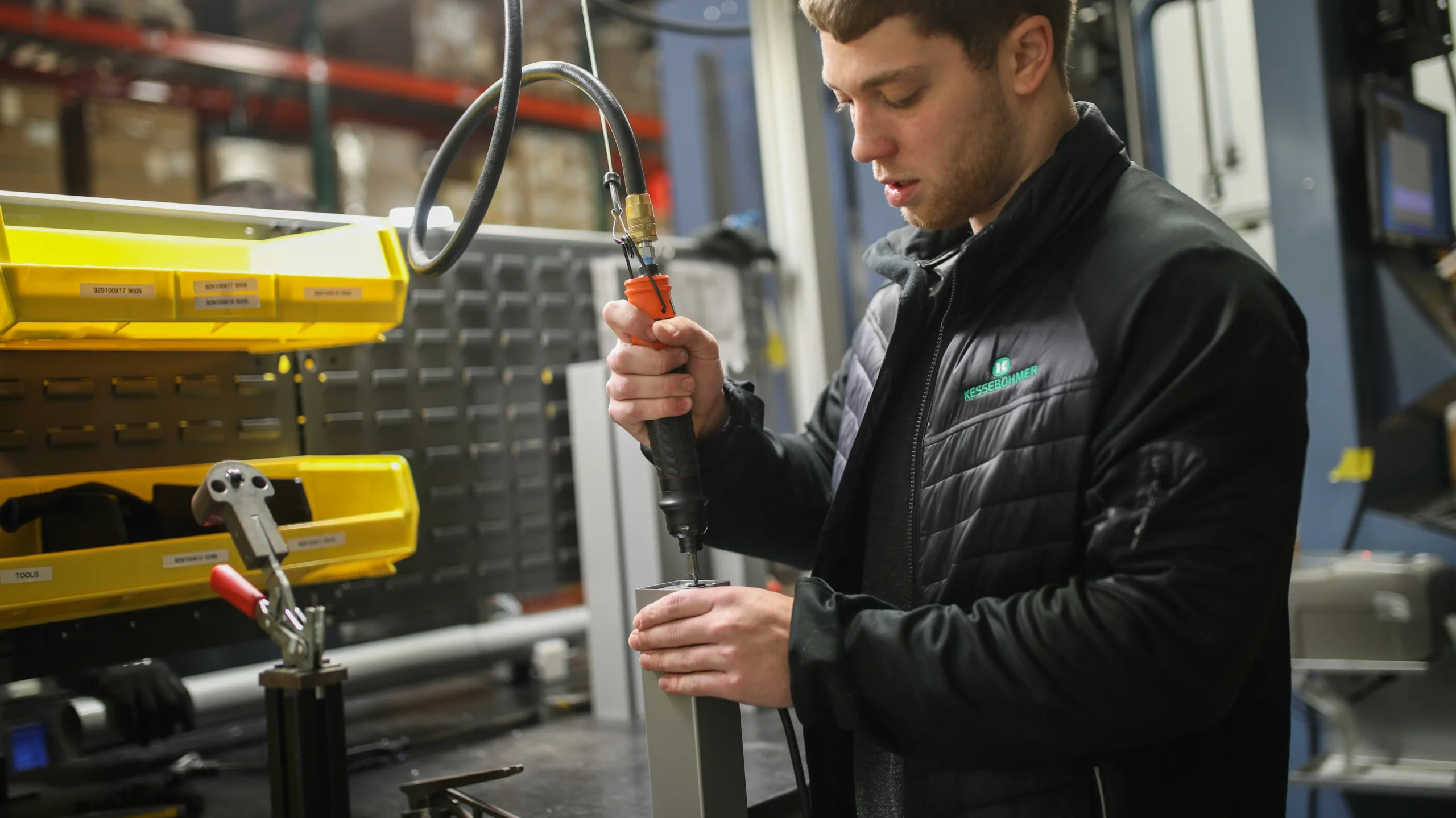
Embarking on a career as a lean manufacturing engineer opens doors to a dynamic field focused on improving processes, reducing leftovers, and enhancing efficiency. With the right skills, information, and strategic planning, you can prove yourself as a key player in driving competence and innovation within manufacturing operations.
In this article, we will provide a clear, step-by-step path to help you successfully launch your career in this exciting field with essential strategies.
Table of Contents
Know the Basics of Lean Manufacturing
Lean manufacturing is a methodical approach to minimizing waste within a manufacturing process without losing productivity. Unlike traditional manufacturing, which often focuses on maximizing output regardless of inefficiencies, lean manufacturing emphasizes value creation by streamlining operations and eliminating non-value-added activities.
According to MDPI, research has shown that lean manufacturing affects production processes in three ways. It is known to enhance the 3 pillars of sustainability: financial, social, and ecological.
According to Industry Week, lean manufacturing can help in the recovery of the US economy. As lean manufacturing increases by 2 to 3 folds, it will be a foundation for reviving the US economy. Lean achieves efficiency gains by converging on constant workforce-based improvement.
This method doesn’t require special materials but relies on specific skills such as process analysis, problem-solving, and continuous improvement. Professionals in this field are trained to identify inefficiencies and implement strategies that enhance overall efficiency, leading to better resource utilization and cost savings.
Obtain the Necessary Educational Background
To excel in lean manufacturing, a solid educational background is crucial, though it doesn’t necessarily require a specialized degree. While a degree in engineering, industrial management, or a related field provides a strong foundation, additional training can further enhance your expertise.
These certifications cover essential principles and tools used in lean manufacturing, helping you to better understand and implement practices. It ultimately improves efficiency and reduces waste in production processes. Pursuing lean manufacturing programs online is an excellent way to gain specialized knowledge and skills relevant to the field.
According to Kettering University, rather than focusing on job-specific skills, these certifications prepare you to use lean manufacturing principles across multiple industries. These certifications build a solid foundation for evaluating and improving quality in diverse scenarios. You get guidance through a data-informed process to pinpoint and implement effective improvement strategies.
Gain Relevant Experience
Gaining relevant experience is pivotal for a successful career in lean manufacturing. Start by pursuing internships or beginner posts in manufacturing environments where lean principles are actively practiced.
Participating in projects or initiatives aimed at process improvement can provide hands-on experience with lean tools and methodologies. Additionally, consider volunteering for cross-functional teams within your organization to work on real-world problems and implement lean strategies. These experiences will build your practical skills and enhance your understanding of how lean principles are applied in various settings.
A study by Springer revealed that many organizations struggle to implement lean strategies in their businesses. Results showed that 88% of respondents said they were completely unaware of lean methodologies. Around 8% said they had little knowledge about it, and 3% were highly knowledgeable. To gain relevant experience in lean manufacturing, people should first be aware of lean strategies.
How can one gain hands-on experience with lean manufacturing tools and methodologies?
One can gain hands-on experience with lean manufacturing tools and methodologies by participating in internships or project-based roles within lean manufacturing settings. Additionally, engaging in simulations or case studies through lean manufacturing workshops and certification programs can provide practical exposure.
Develop Essential Skills
Developing essential skills is key to mastering lean manufacturing and becoming an effective engineer. Focus on building strong analytical abilities to assess procedures and address areas for modification. Proficiency in problem-solving and project management is crucial for implementing lean strategies and managing changes efficiently.
Additionally, improve your conversation and negotiation skills to effectively integrate with cross-functional teams and convey complex concepts. Familiarity with lean tools will also bolster your ability to drive continuous improvement.
How can aspiring engineers improve their proficiency in lean tools and methodologies?
Aspiring engineers can improve their proficiency in lean tools and methodologies by engaging in targeted training programs and workshops that focus on these techniques. Practicing these tools in real-world or simulated projects and seeking guidance from veterans can also provide essential hands-on experience and deepen their understanding.
Pursue Certification and Training
Training and certification are vital for advancing lean manufacturing, as they provide formal recognition of your skills and knowledge. According to Zippia, lean manufacturing engineer jobs are expected to grow at a rate of 10% from 2018-2028. About 30,600 new jobs will be projected for lean manufacturing engineers in the next decade. Earning relevant certifications, which often include practical projects and case studies, can significantly improve your skills in applying lean methodologies.
The engineers can pursue specialized training programs, such as Six Sigma certifications or Lean Six Sigma courses, which offer in-depth instruction on lean principles. For example, a Lean Six Sigma Green Belt certification focuses on improving process efficiency and solving quality issues. A Black Belt certification delves into advanced techniques for managing complex projects.
Stay Updated on Industry Trends
Staying updated with the latest industry trends is essential for sustaining relevance and competitiveness in lean manufacturing. Key trends to watch include advancements in automation and smart manufacturing technologies, which are increasingly integrated with lean practices to enhance efficiency. Additionally, keep an eye on the use of digital tools like AI and data analytics. They are transforming how lean principles are applied in real-time process optimization.
Sustainability and the push for greener manufacturing practices are also significant, as they align with lean goals of waste reduction and resource efficiency. By staying informed about these trends, you can adapt and leverage new tools and strategies to drive continuous improvement in your lean manufacturing practices.
Network and Build Professional Connections
Networking and building professional connections are essential for career growth in lean manufacturing. To do this effectively, attend industry conferences, workshops, and seminars where you can meet experts and peers in the field. Joining specialized organizations and online forums devoted to lean manufacturing can provide opportunities for collaboration and knowledge sharing.
Engaging in social media platforms to get in touch with industry veterans and participate in healthy debates can also expand your network. Additionally, consider seeking mentorship from experienced practitioners who can offer guidance and introduce you to valuable contacts in the industry.
What are the best ways to network within the lean manufacturing industry?
The best ways to network within the lean manufacturing industry include attending industry conferences and workshops to meet experts and peers. Join professional organizations and online forums, and leverage social media platforms to get in touch with veterans and participate in discussions and debates.
Engaging in these activities helps build valuable relationships and gain insights into industry movements and opportunities.
Charting Your Path to Success in Lean Manufacturing
Launching a career as a lean manufacturing engineer involves understanding lean principles, gaining relevant experience, and pursuing specialized certification. You can succeed in this dynamic field by continuously developing essential skills, staying updated on industry movements, and creating a sturdy professional network.
With a commitment to mastering lean principles and a proactive approach to career development, you can drive efficiency and innovation in manufacturing operations.
Education is no longer a one-time event; it's a lifelong journey. As industries shift and new technologies emerge, professionals who prioritize learning will be the ones who shape the future with skill up. Enhance Your Job Skills with Upto 60% OFF.











